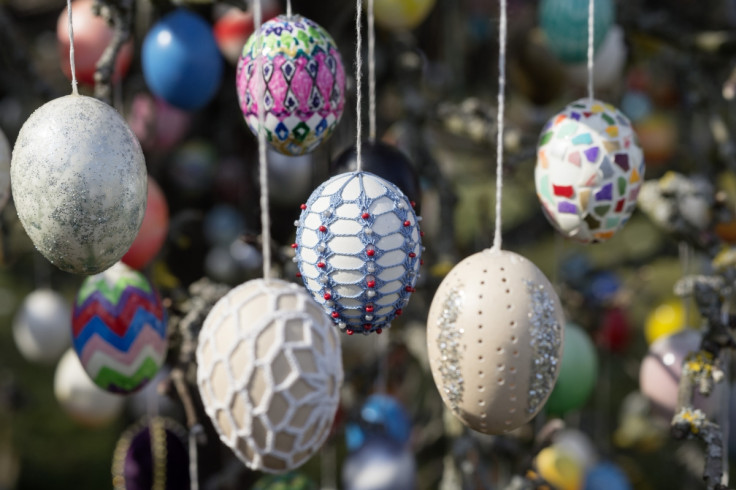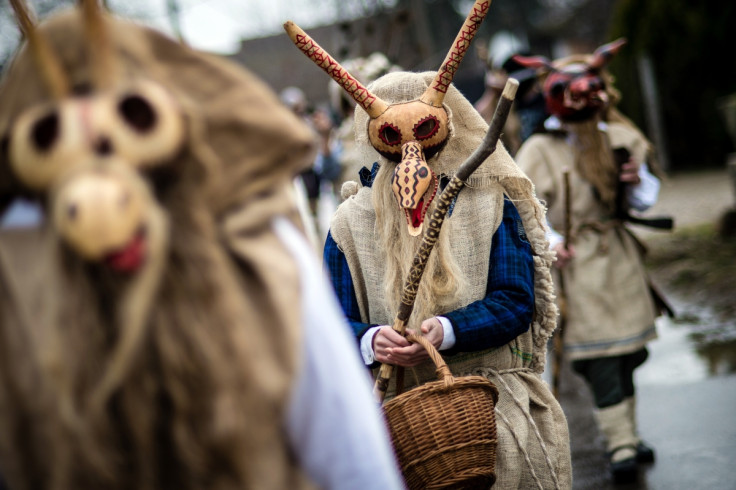Easter 2016: Are the egg and bunny part of pagan traditions?

What would a pagan goddess have to do with the Christian festival of Easter that marks the resurrection of Jesus Christ? And what connection does the Easter bunny have with religious observance?
The controversy regarding the relation between Easter and the feast dedicated to Eostre – a German deity of the dawn – has been in circulation for a while with numerous etymologists working to explain the correlation.
According to the New Unger's Bible Dictionary: "The word Easter is of Saxon origin, Eastra, the goddess of spring, in whose honour sacrifices were offered about Passover time each year. By the eighth century Anglo–Saxons had adopted the name to designate the celebration of Christ's resurrection.
Eostre to Easter
The earliest and sole mention of the connection between the pagan festival and its Christian namesake can be found in the De Temporum Ratione (The Reckoning of Time) a collection of works written by the English (then Northumbrian) monk Bede (673-735 CE). In the Latin writings, the scholar studies solar and lunar calendars that played a role in deciding the exact date on which Easter would be celebrated.
"The first month, which the Latins call January, is Giuli; February is called Solmonath; March Hrethmonath; April, Eosturmonath [...]," a translated version by Faith Wallis, explains.
"Eosturmonath has a name which is now translated 'Paschal month' and which was once called after a goddess of theirs named Eostre, in whose honour feasts were celebrated in that month. Now they designate that Paschal season by her name, calling the joys of the new rite by the time-honoured name of the old observance."
According to pagan mythology, Eostre was a goddess of dawn – the rising sun. She was therefore also considered a deity of fertility and spring and her festival was celebrated in April.
Some etymologists believe that while Easter may have evolved from her name, the dates for the Christian feast were deliberately chosen to overlap with her festival and allow converted pagans to associate that time of festivities with the resurrection. Others state that the overlap is simply a coincidence since Eostre was not a particularly popular pagan deity and whose mention seems to originate only from Bede's writings.

Easter eggs and bunnies
German philologist, folklorist and mythologist Jacob Grimm (of the Brothers Grimm) claimed that eggs were used as part of the traditions related to the festival of Eostre in his book Deutsche Mythologie. Similar writings associate rabbits (bunnies) with paganism as well, as they, like eggs, were supposed to represent fertility, considering their capacity to breed. Instead of working to abolish associations with pagan celebrations, the church at the time allowed them to be adopted and associated with Easter instead.

In Serbia for example, the festival of Bele Poklade – celebrated a week before Easter – also has its origins in paganism, but continues among the Christian Orthodox community. During this time, children walk around the village dressed in scary costumes in order to banish evil spirits and go on egg hunts. They later jump over fires to cleanse themselves in preparation for Easter.
© Copyright IBTimes 2025. All rights reserved.






















